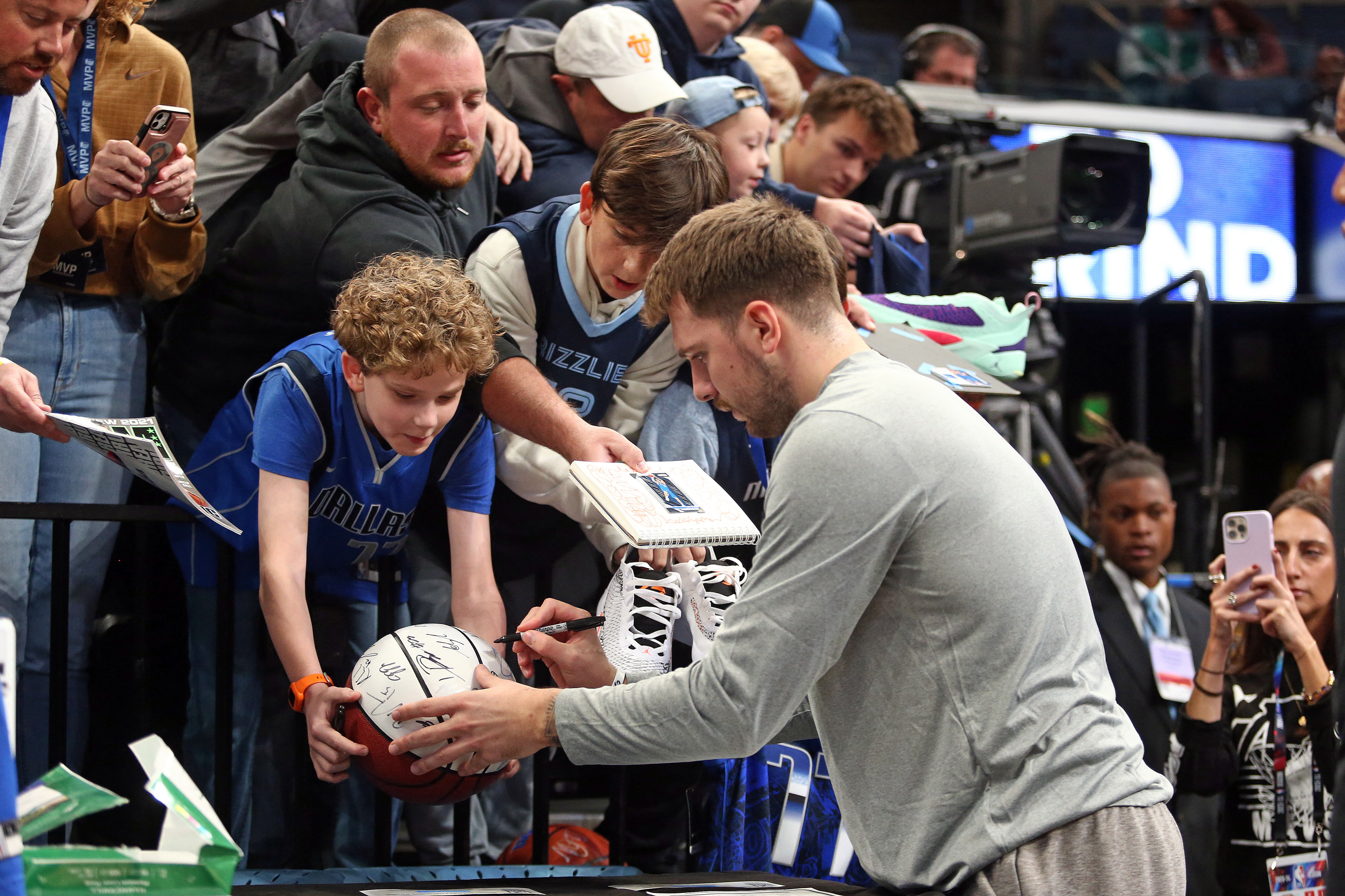Marko Milic has a vivid memory of Luka Doncic that Dallas Mavericks fans want he could relive.
Luka, then nine years old, joined his father, Sasa, and Milic on the court to celebrate their professional Olimpija team’s 2008 Slovenia Cup victory.
Though not a team member, but present frequently enough to stake a claim, Doncic, happy and gregarious, snatched the trophy from his father and paraded it in front of the spectators himself.
“You put a 9-, 10-year-old kid in a classroom in front of 30 kids, they get a little shocked,” she recalled. “For him, this was his natural moment.”
Milic intends to attend once more.
Milic, the NBA’s first Slovenian player, is the head of the Slovenian national team and a new Mavericks player-development assistant this season. Milic has a long history with Doncic and Dallas coach Jason Kidd that will continue with major title pursuits during the EuroBasket knockout rounds this week and throughout the upcoming NBA season.
Milic, 45, reflected on recollections of Doncic as a young hooping prodigy in an interview with The Dallas Morning News during the EuroBasket group stage and stated how he hopes to take a personal, close, and flexible approach to Doncic’s growth in Dallas.
“More pressure, it is more him smiling,” Milic said. “Sometimes he enjoys the pressure, he enjoys the game. This is the thing you’re born [with]. You can build the muscle. You can learn to shoot, but if you don’t have this inside, it’s pretty tough.”

Two things stood out to Milic when he met Doncic.
One: The young kid was really good and competitive at basketball.
Two: He rarely stopped smiling.

Not much has changed since — and Milic has marveled up close at how Doncic’s manner and passion have remained consistent as his international stardom has evolved.
Doncic used to jump onto the floor during halftime of his father’s games and encourage people to join him in shooting free throws, running dribbling drills — anything.

He wasn’t large or powerful enough to confront his father’s teammates on the field, but by the time Doncic was 10, they were cheering him on in shooting contests.
“From the beginning, we joke,” Milic said, “but later he started kicking our ass when we shoot serious with him.”
Even so, Milic was surprised when Sasa brought 10-year-old Luka to his basketball camp up in the Slovenian mountains.
He reminded Sasa that the other participants were 14 years old.
“He needs to learn,” Sasa responded.
So Luka did.
At 13, Doncic signed his first professional contract with Real Madrid and moved to Spain — away from family, friends, his hometown and native language.
As Doncic played two years for the youth teams and started his senior rise in 2016, Milic wondered how the attention, skyrocketing expectations and foreign immersion would affect Doncic.
“It didn’t take his smile away,” Milic said. “Many times when you push a kid [it does], but for him, the pressure, he doesn’t feel pressure.”

“It’s like, I have three kids,” Milic said. “I’m going to give them advice, but if I want them to grow, I have to give them the personal freedom to learn from their mistakes.
“It’s important that you give him enough space so he can show his talent. You cannot put him in a box. … If you give somebody an open hand, somebody could think you’re soft and take advantage of you. With him, he will appreciate and respect and know by himself where the borders are, so you don’t need to be more than friendly.”
As a Phoenix Suns rookie with Steve Nash in 1997, Milic often had to remind himself during practices to not gawk at the team’s leading point guard, Jason Kidd, who defied the traditional pass-heavy point guard mold.
Kidd rebounded, defended full-court, posted up and dunked as a “triple-double machine.”
“He was like Luka now,” Milic said, “but 20 years ago.”
That’s why Milic didn’t hesitate to accept the Mavericks’ offer to work with both in Dallas.
Milic remembers chatting with a friend about a year ago about how much he admired the Mavericks’ willingness to experiment outside the norm.
In 1998, they went after Dirk Nowitzki as an unheralded, second-tier German league prospect and Nash, who Milic jokes, “has a big heart, but is the size of a soccer player.” Both became league MVPs and, after Nowitzki’s likely first-ballot induction next year, Hall of Famers.
Doncic also endured executives and analysts questioning his potential when he entered the league in 2018.
But never Milic.
“With Luka, now it’s easy to be smart,” Milic said. “But a couple years ago … if they want to put him back in the box, he’s not the guy from the box who’s going to be jumping, sprinting, checking his body fat and thinking about himself.
“He’s a prototype of the new generation of the players, which play more unselfish with the brain than, let’s say, with the jump and the muscles. Plus, his smile and his imagination, this is very interesting for not just people in Dallas, but globally because he’s somebody that brings back poetry in the sport.”
